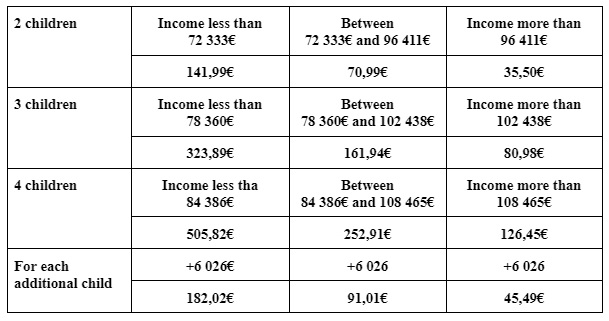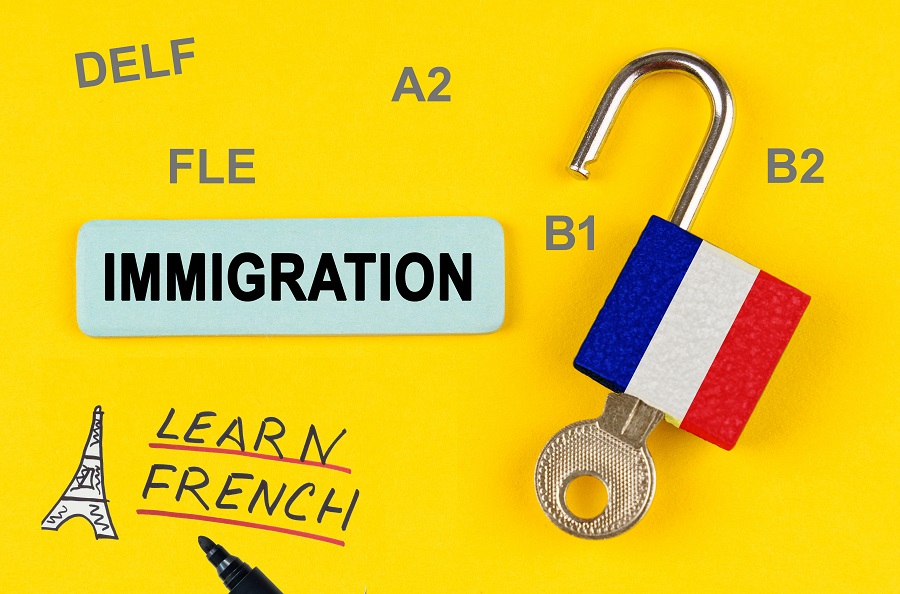Multidimension desk:
As planned in the program of President Macron during his second term, the pension reform project is presented on January 10, 2023. The government announced that the legal retirement age will be pushed to 64 years from 62 in order to be in balance with other European countries. For example, the standard retirement age in Germany is 65 years and 7 months. The main logic behind the reform is an aging population base with increased longevity which is surmounting pressure on pension funds which will dry up in future in absence of necessary reform.
The retirement age will decline by 3 months per year and will reach 63 years at the end of Emmanuel Macron’s five-year term and 64 years in 2030. According to Prime Minister Elisabeth Borne, in order to receive a full pension, one has to work for 43 years or 172 quarters of contributions from 2027.
However, for those who will not be able to contribute for 43 years, the full retirement age (without discount) remains at 67.
In addition, the minimum pension rate will be raised to 85% of the SMIC (minimum salary), an increase of 100€, as promised. This is equivalent to 1200€ of pension per month. As this reform is indexed to the SMIC, the pension will evolve at the same time as the SMIC. Both new and old pensioners will be able to benefit from this revaluation.
The different existing pension schemes will be closed and the government will set up a universal pension system, based on points. New recruits will be affiliated to the general pension scheme.
Those who started working early will be able to retire earlier. For example, people who started working before they were 16 will retire at 58, those who started working at 18 will retire at 60 and those who started working before 20 will retire at 62.
In addition, this reform will take into account arduous work, the carrying of heavy loads and others, which will benefit from a financing of leave for professional retraining.
Victims of an accident at work or an occupational disease will be able to retire due to disability at 60 years of age (compared to 62 years of age in the initial draft). Disabled workers will be able to retire from the age of 55.
This reform is very controversial because it would lead to a decrease in the number of jobs available, especially for young people, and to job insecurity for those who are already unemployed, and would reinforce gender inequalities. We know that women often have a chopped up career, so they will have to work longer to avail full retirement benefits. However, as women do not receive the same salary as men, their retirement pension will also be lower.
This will worsen the condition of the most precarious and those who started working early and whose life expectancy is lower than the rest of the population.
On January 19, the first national strike against this reform took place, followed by others during January, February and March. According to all the polls, this reform is particularly unpopular with almost 70% of the population saying they are against it.

On March 16, the Senate (upper house of the parliament) passed the reform with 193 votes for, 114 against, a bill amended as a result of a consensus between the right (the Republicans and the centrist) and the Macronist majority on several issues such as long careers, creation of an end-of-career contract for the recruitment of employees aged 60 or more (CDI sénior), premium for mothers in charge of family, although the main measure of raising the legal retirement age to 64 years remains in place.
Since the government is not sure of the number of votes in favor of the reform in the National Assembly (Lower house of the parliament), it has announced the use of Article 49.3 of the Constitution to pass the reform without going through the vote of the parliament members (MPs) on the same day.
The French people were outraged by this news, which goes against the principles of democracy. As a result, the strike of Thursday, March 16, which started as a peaceful strike, degenerated. The demonstrators invaded the streets of Paris, garbage cans were overturned and burned as well as many cars. The police tried to stop the demonstrators and more than 200 people were arrested. The unions have called for further mobilisations. The strikes against the reform, as well as the strikes of transport and garbage collectors continued the following days.
On March 17, two no confidence motions, the first of which is transpartisan tabled by the group Libertés, Indépendants, Outre-mer et Territoires (LIOT) and the second tabled by the Rassemblement national (party of Marine Le Pen), to make the government back down on its decision. Those will be studied on Monday, March 20 at 4 pm in the National Assembly. If none of the no confidence motions is voted by an absolute majority of the MPs, i.e. 287 votes, the text will be considered as definitively adopted without a vote.
The president of the Republicans, Eric Ciotti, announced that his party MPs will not vote on any of the no confidence motions, but their votes are necessary to achieve a majority (at least thirty). According to the president of the RN, Jordan Bardella, the adoption of no confidence motion is “possible if the opposition, i.e. the NUPES (alliance of left parties and the ecologists, which includes the ‘Unsubmissive France’ of Jean-Luc Mélenchon) and the RN, come together”.
Meanwhile, on Saturday, March 18, another demonstration took place against the reform and tensions broke out in different French cities such as Nantes, Brest and Bordeaux. In Paris, certain areas were restricted to rallies and many metro stations were closed even though calls for demonstrations were made on social networks the day before.
Another national strike day is planned for Thursday 23 March.
Latest info:
After the rejection of both of the no confidence motions against the government, the pension reform was automatically adopted Monday evening.
The transpartisan no confidence motion (LIOT) received the support of 278 MPs, only nine less than the absolute majority (287 votes). At least 22 Republican MPs have voted in favour of the motion disobeying party’s decision.
The oppositions still have two tools to block the pension reform: the establishment of a shared initiative referendum (RIP) and an appeal to the Constitutional Council.
The adoption of the pension reform has triggered stronger protests all over France. There are many incidents of violence and arrests of demonstrators by the police.
President Emmanuel Macron will address the French population on Wednesday at 1:00 p.m. live on TF1 and France 2.












Recent Comments